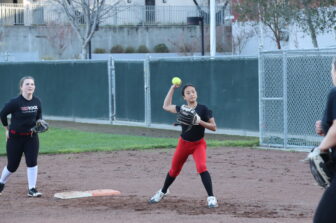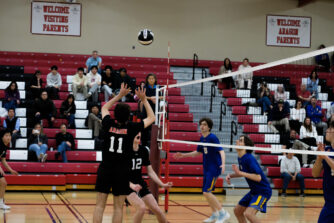Sports are undoubtedly a major facet of American culture. They generate billions in revenue for team owners, shareholders, players, managers, coaches, and executives among the countless individuals involved in the industry. But highly televised sports are also paired with online fantasy sports that provide each individual the opportunity to manage a team of professional athletes and compete against their peers, with the best teams scoring the most points. Baseball leagues, for example, occur mainly online and are significant features on websites such as ESPN and Yahoo.
In fantasy leagues, the owner drafts a team of players, and during the season he or she can add players, drop ones whom you are tired of playing with, and trade them to improve your team. Also, there are multiple formats to play in, such as Rotisserie, where the team with the best overall stats wins, and the head-to-head format, which is when each team plays against another each week in a head-to-head battle, and the team that wins in the most stat categories gets the win over their opponent.
Rotisserie leagues are based on each baseball player’s individual stats from the actual games. Those stats determine how each team gains points. For example, if the players on a team are stealing the most bases and give the owner the most steals in the league, then he or she would have the most points from the stolen base category. However, that same owner’s team may not have the most home runs, making it important to have a well-rounded team in order to have a good chance at winning the league.
In addition to baseball, there are fantasy sports leagues for football, basketball, golf, hockey, soccer, and even fishing. One type of league is a prize league, where each member (owner of a team in the league) chips in a certain amount of cash and the winner takes it all. But what makes fantasy sports so interesting? The answer, quite simply, is that they allow the average Joe to be able to live the life of a real sports general manager, like Oakland Athletics General Manager Billy Beane or the San Francisco Giants’ Brian Sabean.
History and Significance
The first fantasy sport was founded in 1980 with America’s pastime: baseball. The Rotisserie League Baseball was founded by Daniel Okrent, a former magazine writer and editor, who chose its name after a hangout that he and his friends frequently visited. Already a member of the media, Okrent spread the word about fantasy baseball. In 1984, an official guide for Rotisserie baseball was created and by 1988, around 500,000 Americans had begun playing fantasy baseball.
Meanwhile, through the 1990s, the number of fantasy players jumped as high as 4 million, and in 1997, the creation of two websites would change the fate of fantasy sports forever. Rotonews.com (today known as Rotowire.com) and Commissioner.com (now the sports engine behind CBSsports.com) were created. Each provided real-time tracking of major league baseball players—injuries, performances, highs and lows, daily stats, etc.—along with leaderboards to track the value of each player. Yahoo added its own fantasy league in 1999, becoming the first major media market to do so.
Overall, fantasy sports entered the 21st century as a booming business ready to provide bucketloads of revenue for providers like Yahoo and ESPN. In 2003, a survey from the Fantasy Sports Trade Association (FSTA) came out that said as many as 15 million people were playing fantasy football and each had spent at least $150 on average each year, making fantasy football a $1.5 billion dollar enterprise.
Arguably, fantasy sports also generate revenue for the NFL and MLB. In 2002, the NFL conducted a survey and found that the average male in the survey watched football for about 6.6 hours a week; a fantasy player watched even more, at about 8.4 hours a week.
A decade later, the revenue generated from fantasy sports has soared to enormous heights. The FSTA’s new study shows that over 33.5 million people play fantasy sports in the United States. In fact, the FSTA now estimates that 32 million Americans spend $467 per person, or about $15 billion in overall playing. $11 billion comes from fantasy football, compared to the NFL’s current revenue alone at $10 billion.
Aragon fantasy sports players share their experiences
The popularity of fantasy sports also extends to high school sphere. Many students at Aragon currently play them and create private leagues with their friends. Casey Vanderlip, a very active sophomore fantasy sports player, says, “[Fantasy sports allow me] to learn more about the stats, which makes the game more fun.” In regards to his favorite part about competing in fantasy leagues, Vanderlip loves trying to change his team around for the better, of course. “I love trading, so I can rip people off…And make my team better, of course.”
Junior Spencer Larsen enjoys the fact that fantasy sports have given him an enhanced involvement in following sports. He says, “I still watch sports the same, but it gets me more interested in them in general.” With players on his team that are competing against his favorite teams like the Giants, Larsen won’t budge in his support for his players. “I root for my fantasy players, even if it’s against a team that I like.”
In many fantasy leagues, there is almost always a draft party, where everyone who has a team in the league gathers with their computers to draft players and give each other a hard time about who they are willing to pick. Larsen and his friends have a draft party each year. “It’s fun to interact with people that you are going to be competing against,” says Larsen.
Every team in fantasy sports always has to worry about injuries to their players, especially the premier ones. A season-ending injury to one player might make the difference between that owner winning or losing the league—in other words, whether or not they will win the $100 league prize. Vanderlip suffered a tough blow to his team just this past year. “Five of my key players all got injured on the same day last year, and one of my star players got suspended,” he says.
His reaction, of course, was not a happy one at first. “I immediately threw my phone across the room, and then to cheer myself up I ate two cheeseburgers.” Yes, one day in a fantasy baseball season does have the ability to break one’s heart!



